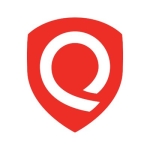I have onboarded AWS environment accounts for some clients and some online hosted repositories on third-party platforms.
We currently have four modules. We have Application Security, Runtime Security, and Cloud Security. The latest one is Data Security, but I have only been using the other three modules.
I have mostly onboarded accounts. I have not used its other features much. I am aware of the environment dashboard that we get after 24 to 48 hours of scanning. The suggestions that they give are in a curated manner. We can see what steps we can take to minimize risk or remove critical or high-level vulnerabilities. This categorization based on severities helps us to prioritize which risks need to be remediated first.
It helps us to prioritize. We can see what is the scenario at the network level, identity level, or Internet exposure level. On the basis of these categories and on the basis of severity, we get the whole cloud security posture of the environment and also the suggestions.
It has helped save some time. The customer environment can be very vast, and the use cases can vary. A startup environment or beginner-level cloud environment is easy to check manually, but for users who have been using cloud environments for three or four years, manual checks are not efficient. Prisma Cloud saves time and costs. We are able to give a much more informative review of the cloud environment.
Prisma Cloud is a cloud-native application protection platform. That is what we showcase to our potential customers. It has helped us to gain the confidence that we can proactively monitor a cloud environment or a repository. One of my recent use cases was related to the repository. The establishment of trust is there, and the extent of cloud security services has also rapidly increased for our organization. This offering has been a great pillar for our organization.
It not only provides the risks and misconfigurations; it also includes compliance, so the industry-level standards are also monitored.
I started onboarding environments only two or three months ago. After the first scan, I could see the cloud security posture on the dashboard. In some cases, I could see misconfigurations and some package-level vulnerabilities. They were all categorized on the basis of severity. I discovered all these things. Out of them, some issues were commonly found. We are able to resolve them in the easiest manner. Considering the number of issues that it discovered, it would have taken us months to monitor all the events manually. The customer environment keeps changing and the requirements also change, so the cloud security posture also changes. Prisma Cloud scans on a regular basis and saves a lot of time.
The visibility level that it provides is the best. It is not restricted or limited to a few attacks or vulnerabilities. Every day, any type of attack can happen. There can be an attack of any severity. We are able to see all the possible incidents and all the possible issues in the environment. It has made us proactive, so our confidence has also improved.
The dashboard gets updated on a real-time basis. The first time, it takes 24 to 48 hours. After that, the latest scan is always available. It is consolidated. We get a detailed and comprehensive view from Prisma Cloud. It is easily accessible from the command center.
Prisma Cloud has saved us time. It helps us to fulfill our commitments. Without Prisma Cloud, it would take us double time to deliver to our customers what they want.
I believe it covers the containers and host-level security. It does provide information about how many hosts are in the environment and how many containers are deployed on Prisma Cloud. It tells us if any of the containers or hosts are affected and by which vulnerability. A comprehensive view of all that is available. We can see package-level vulnerabilities for PHP packages, Python packages, etc.
Visibility and control are the most utilized features. A dashboard is available to us where we can view different categories. We can see any IAM-related risks, any discovered vulnerabilities, any incidents, or any network-level issues. So, visibility and control are the most utilized parts. We can also view possible remediation or suggestions for each of the issues.
I recently onboarded some of the repositories, and for that, the issues were categorized into four types. The view was not very easy to understand. The Application Security dashboard was not as user-friendly as the Cloud Security dashboard. The Application Security dashboard can be improved in terms of UI. The categories provided should be helpful for the ones who are using it for the first time.
Other than this, I do not have any areas for improvement. I am a new user. I entered the domain of cloud security only six months ago. Before that, I was in a different domain. As of now, I see Prisma Cloud as an excellent tool.
I have been using Prisma Cloud in my current job role for the last six months.
It is stable. I have not had any issues.
I have not faced any limitations.
I have not interacted with their support.
I have not worked with any similar solution previously.
It was already installed when I joined. I only had to ask for some admin access, which was configured by the internal team in the organization, and my account was easily onboarded.
The client account onboarding was also seamless. So far, we have onboarded five to ten accounts. Regarding the number of users, we provide limited access because it is a matter of cloud security. Overall, there are five to ten users, which also includes customers with view-only access.
It was already here when I joined.
I would absolutely recommend Prisma Cloud for cloud security posture management. It is great for onboarding cloud accounts. It is also good for onboarding repositories to improve application security.
I would rate Prisma Cloud a ten out of ten.
















